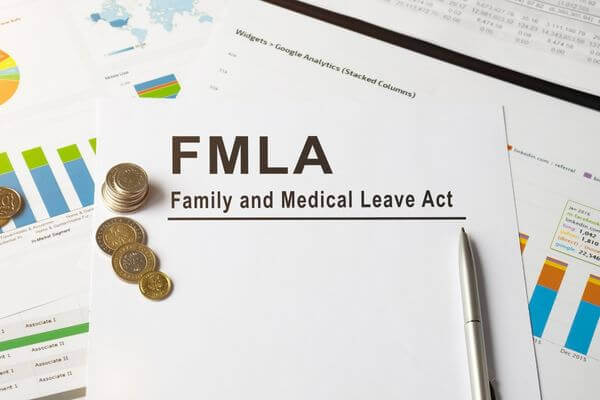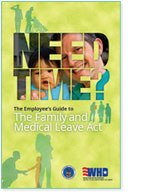10 Legitimate Family Emergency Excuses to Miss Work + Examples
Inside: This guide provides 10 legitimate family emergency excuses to help you avoid work, no matter what your employer says.
It’s inevitable. Sooner or later, you will have to miss work for a family emergency.
The question is, what excuse should you use? You don’t want to sound like you’re making excuses, but you also don’t want your boss to think you’re lying.
You rack your brain for a legitimate excuse, but nothing comes to mind. And the last thing you want to do is use one of your “sick days” for something that’s not actually sick-related.
But before you reach for that tried-and-true standby (“my grandmother died”), consider this: there are plenty of other legitimate excuses you can use to miss work, without having to lie.
Just to note… be wary of using these family emergency excuses on a regular basis because it may cause you not to have a job.
In this post, we’ll give you ten examples of real family emergencies that are totally valid reasons for taking a day (or more) off from work.

What is a family emergency?
A family emergency is an unexpected event that affects the health and/or safety of your family members or other close loved ones.
It’s important to remember that a family emergency is different than a personal emergency, as it involves the health or well-being of a family member.
Below we will cover, family emergency examples you can use.
What’s a good family emergency excuse?

This could include a sudden illness, injury from an accident, or another devastating event.
Make sure the family emergency excuse is used when you need to miss work due to an unexpected event related to an immediate family member.
Every family is different, so you can also come up with your own family emergency excuse.
Good Family Emergency Excuses
1. Illness or Injury
2. Family Member on Life Support or Death
3. Car Accident
4. Childcare Issues
5. Household emergency
How do you say you have a family emergency?

For many people, privacy is foremost and they don’t want to delve into all of the details.
However, you must contact your employer as soon as possible.
Be prepared to explain the details of your family emergency, such as when it happened and how long you expect to be away from work.
Offer to update your employer on the status of your family emergency daily. This will ensure they know you are taking the situation seriously.
This post may contain affiliate links, which helps us to continue providing relevant content and we receive a small commission at no cost to you. As an Amazon Associate, I earn from qualifying purchases. Please read the full disclosure here.
This hilarious coloring book for grown ups will create plenty of laughs all round.
most legitimate family emergency excuses

Family emergencies are unexpected and often unpredictable events that can have a significant impact on the health and/or safety of your family members.
They can range from medical, financial, or even environmental issues.
Be wise in using a family emergency as one of the good excuses to miss work.
Following are some of the most common types of family emergencies and how to handle each situation:
1. Illness or Injury:
This type of family emergency is usually associated with the unexpected illness of a family member which requires medical attention.
Characteristics of this type of emergency include feeling overwhelmed, needing medical care, and feeling uncertain of how to proceed.
2. Unexpected surgery:
There are plenty of reasons for an unexpected surgery including a recent illness or injury to a family member during non-work hours.
Another possibility that happened to us personally was the doctor was able to bump up our surgery by over a month due to a cancellation. With the uptick in Covid cases, this will probably be the norm for a while.
An unexpected surgery will throw a wrench into everyone’s calendar. But, obviously, surgery would be needed.
Also, in most cases, an unexpected surgery is critical in nature and should be addressed quickly. For me, it was one of the reasons I needed to prepare for back surgery.
3. Serious medical condition of family member

A serious medical condition of a family member is considered an acceptable excuse for a family emergency as it requires extra care and attention. Such a condition can include any health condition that carries a high risk of mortality, such as cancer, chronic heart failure, or dementia.
It can also include any other condition that can severely disrupt a person’s life, such as a stroke or chronic mental health issues.
Taking care of a family member with a serious medical condition can be a long and exhausting journey.
Therefore, it is important to support those affected, such as taking time off work to attend medical appointments or provide care.
4. Death of family member
The death of a family member can be a traumatic event and a valid emergency excuse for taking time off work.
The bereavement leave provided by many companies allows employees to take some time off to deal with any arrangements they need to make, such as funeral and burial arrangements, and to grieve the loss of their family member.
It is essential to check the company’s policy in regard to bereavement leave before informing your employer of the situation and seeking leave. Many companies limit their bereavement policy to include only immediate family members. So, if your loved great-aunt passes away, you may have to take personal time off.
While there is no set time frame for mourning, it is important to give yourself the time and space to properly grieve and heal. Furthermore, employers are generally understanding when it comes to family emergencies and the need to take time off work.
5. Transportation Issue

This type of family emergency may be caused by car trouble or public transportation hindrance and can be quite debilitating.
Even worse would be a car accident, which can be very stressful and is considered a family emergency.
This type of emergency is common and can happen for a lot of reasons. So it’s important to have a few steps in place to avoid common car trouble or public transportation issues.
Also, needing to arrange for alternative transportation or get a rental car will take time away from your job. Recently, I needed a rental car because my car was in an accident. The process of getting my rental car took over two hours.
6. Childcare emergencies
Childcare emergencies that are considered legitimate family emergencies can vary from situation to situation.
Examples of these emergencies include:
- A sick child or dependent: If a child or dependent becomes sick and needs to be taken care of, this is considered a family emergency.
- Babysitter sick: If a babysitter is sick, this can cause a lot of disruption to your childcare arrangements and is considered a family emergency.
- Daycare center closed: If a daycare center is closed for any reason, this can cause a disruption to your childcare arrangements and is considered a family emergency.
- Child staying home due to mental health: If your child has to stay home due to mental health reasons, you have to take time off to watch them, and this is considered a family emergency.
- School is canceled due to weather: This is very common throughout the winter due to snow or ice storms. Thankfully, most school districts are giving families ample time to line up alternative child care plans.
This type of family emergency can arise when you suddenly need to secure childcare for your children.
With many people able to work from home, you might need to be flexible and log in from home. If that is not an option, then you will probably need to take another shift later in the week to cover for your co-workers helping you out.
7. Emergency pregnancy complication

This one is scary and hopefully will never happen to you!
An emergency pregnancy is a situation in which an expectant mother experiences a health complication that requires her to receive immediate medical attention.
Emergency pregnancy complications are often unexpected and can be emotionally and physically draining for both the mother and her family.
Under the Family and Medical Leave Act (FMLA), this is considered a legitimate reason and allows an expectant mother the option to take unpaid leave for up to 12 weeks to receive the necessary care. This law protects the mother’s job, allowing her to return to work after she has given birth, and also ensures that her health benefits will remain in place.
8. Domestic violence situation
This is a very difficult situation and you must take the correct steps in order to remove yourself from this situation safely.
An example of a domestic violence situation as an emergency family excuse could involve a situation in which a family member is being abused or threatened by another family member.
Domestic violence does not have to be physical, but can also involve psychological, verbal, or emotional abuse.
In this case, the family member may need to leave their situation immediately to protect their safety.
Unfortunately, not all supervisors will be flexible with this type of excuse as it is difficult to produce evidence without a court order, hospitalization, or other extreme circumstances.
9. Natural disasters

Natural disasters can be devastating and force you to miss work suddenly. Some examples of natural disasters that could be considered family emergencies include:
- Earthquakes: are sudden, violent shaking of the ground caused by shifts in the Earth’s crust and can cause landslides, tsunamis, and other disasters.
- Hurricanes: are intense tropical storms that can bring heavy rain, strong winds, flooding, and storm surges.
- Tornadoes: are rotating columns of air that descend from thunderstorms, causing destruction and damage to anything in their path.
- Wildfires: are large, uncontrolled fires that can cause destruction to entire communities.
- Floods: are caused by heavy rain and can cause major damage to property and lives.
- Avalanches: are natural disasters that can occur in mountainous regions, resulting in mass destruction and loss of life.
Typically, if this type of situation arises, most employers are already issuing guidance on how to handle your work.
However, if you were looking to care for your parents in a disaster area, you would have to contact your boss and make the best plan for your personal situation.
10. Home Emergency
This type of family emergency usually arises from a home emergency such as a flood, leak, fire, or other issues that require immediate attention.
While it is best to tend to these situations outside of work hours, you may have to be available to let insurance appraisers or contractors in to do any necessary repairs.
More than likely, you are feeling overwhelmed with what just happened and uncertain about how to proceed.
You may be able to get helpful advice from your supervisor on the quickest way to handle the situation.
11. Emergencies involving pets

Everyone loves their pets and hates to see an urgent vet appointment happen, a pet going missing, or an illness requiring immediate medical care.
If your pet is seriously ill and needs your care, it is a valid reason to take time off work. Just realize you are likely going to have to take personal time off for the hours missed.
For many, their pets are like their children. However, FMLA does not cover pet emergencies as a reason to miss work for an extended period of time.
12. Personal trauma
Personal trauma is emotional and mental distress caused by a difficult or traumatic experience.
It can be caused by major events like natural disasters, losing a loved one, or a traumatic incident such as a car accident or assault. Other causes are smaller events that take place over a period of time, such as living in a toxic environment or experiencing ongoing bullying.
It is an acceptable family emergency excuse because it can cause severe emotional and mental distress. This can have a significant impact on your family member’s physical and mental health.
In such cases, the individual needs to take time away from work to focus on their recovery and well-being.
In addition, it is important for employers to be understanding and accommodating of those needing to take time off for mental health so that everyone can return to work safely and healthily.
How to explain the absence due to a family emergency excuse

A family emergency can be a tricky thing to deal with.
You may have to leave work or school for an extended period of time, which can put a lot of stress on you.
Here are the steps you can take to explain your absence with a legitimate family emergency excuse:
1. Communicate the situation to your employer
Contact your employer as soon as you realize you won’t be able to go to work. Doing so helps avoid inconveniencing your boss and coworkers.
Calling your employer to inform them of an absence due to a family emergency and explain this can be a difficult and stressful experience.
However, try to communicate professionally and calmly and ensure to provide your supervisor with all the necessary information.
I explain the nature of the emergency and what steps I will be taking while away.
You need to be careful if you don’t want to work anymore.
2. Find out Your Company’s Protocols

Your employer’s policies for explaining absence due to a family emergency vary depending on the company.
Generally, you should contact your employer as soon as you realize you won’t be able to go to work.
Be honest about why you won’t be there.
To adhere to the business policies, you should check the employee handbook or speak to a human resource representative to ensure you follow the right procedures. You can also contact your superior or risk management officer for more information.
When communicating your absence, you should speak in a professional tone and use straightforward language. Mention any concerns you have regarding the absence and provide the necessary details. However, avoid over-explaining, especially if the reason is personal.
If there are formal policies in place, make sure to follow them.
3. Request time off and Possible Timeline for Missing Work
When speaking to your supervisor, request time off due to a genuine reason.
Tell them you reviewed the company’s policy and procedure regarding taking time off and that you are aware of the protocol.
Make sure to provide a timeline for when you may return to work and updates regarding your situation.
This will demonstrate to your employer that you are still committed to the job and plan to do everything possible to make up for the missed time.
If you are in an ‘at-will’ state, be aware that you can be fired for calling in sick. Nevertheless, it is unlikely that your employer will fire you for taking one or two days off occasionally if you follow the tips about communicating with your boss.
4. Gather all the relevant documents

This will probably be the last thing on your mind during an emergency.
But, you will need documentation to prove your family emergency was legit.
- Ask for doctor’s notes.
- Ask for court copies of the paperwork.
- Take pictures of the accident.
- Create a digital file of this information.
All of this related paperwork will help to prove your case if you need it.
Also, make sure you have written documentation outlining the situation, your action plan, and timelines for return.
5. Be Proactive with Coworkers to Cover Your Job
Discuss your strategy with your coworkers in advance to ensure they understand. Make sure they are capable of assisting with any responsibilities that can arise during your absence.
- Inform people working on urgent projects you’re involved with on what to do in your absence.
- Offer to brief a coworker on any projects you are working on. This will make sure the work is not left undone in your absence.
- Set up an out-of-office message indicating your coworker is filling in for you.
Prepare to make up for missed work when you return. This may include working extra hours or completing additional tasks.
Being transparent and honest is essential in these situations.
6. Make sure you have access to financial resources

You will know from your employer whether your family emergency will be paid or not paid.
If money is tight, you may have to dip into emergency savings or a rainy day fund in the interim.
Also, research programs can help provide you with financial resources for your family emergency. This includes scholarships, grants, and other forms of aid.
For instance, the state of Colorado has created its own program for Paid Family Leave to pay benefits.
7. Apply for FMLA, if applicable

The Family and Medical Leave Act (FMLA) is a federal law that guarantees eligible employees of covered employees up to 12 weeks of unpaid, job-protected leave each year for family emergencies.
To be eligible, the employee must have worked at the same employer for at least one year and have worked at least 1,250 hours in the past year. The employer must have at least 50 employees within 75 miles of the workplace.
The FMLA defines a family emergency as an unexpected event that affects the health or safety of an employee’s immediate family. This could include the birth and care of a newborn or adopted/foster child, care for an immediate family member with a serious health condition, or when the employees themselves are unable to work due to a serious health condition.
During this leave, the employee’s health benefits must be maintained.
8. Know Your Rights

If your employer does not allow you to take time off, fires you, does not give you your job back, makes working at the company miserable after taking leave, or does not give you the compensation that you are entitled to, you should contact your state’s Department of Labor.
Additionally, you can review the guide, “Employer violations of FMLA rights,” to understand more about the most common FMLA violations by employers and how to protect yourself.
Family Emergency Email Sample

Dear Teacher/Professor/Boss,
I am writing to inform you of an unexpected family emergency that I will need to attend to shortly. I understand that this sudden absence may cause difficulties for you and the rest of the team and I apologize for the inconvenience.
Included is a list of documents and information that will help you understand the situation and provide me with the time I need to attend to the emergency. This includes:
- The nature of the emergency
- Details of the emergency to be shared (immediate family member, what happened, etc.)
- Bereavement leave available
- When I foresee myself being absent
- If I have delegated work to my peers or coworkers
- Any projects that are considered urgent
- Any meetings or other deadlines that I am missing
- If I will be available via phone, text, or email while I’m away
- Any proof such as a doctor’s note
I appreciate your understanding and ask that you please keep me in your thoughts during this difficult time.
Sincerely,
[Your Name]
What are some possible consequences of using family emergency excuses?

- Loss of trust from your employer. Even if you are telling the truth about a family emergency, your employer may take your excuses with a grain of salt if you use them too often.
- Poor performance and missed deadlines. If you are taking too much time off, your work may suffer as a result.
- Negative feedback from colleagues. Your coworkers may start to feel resentment if you are taking too much time off, as it will affect their workload and performance.
- Poor attendance record. If you are frequently missing work, it will be reflected in your attendance record, which could potentially lead to disciplinary action.
- Longer wait times for paychecks. You may have to wait longer for your next paycheck, as you may not be paid for your time off.
Be careful or you may have to use one of the best excuse to quit a job without notice.
Are there any tips for using family emergency excuses effectively?

- Choose a believable reason for the family emergency. It should be something that shows the well-being or health of an immediate family member, such as you or your spouse, parent, grandparent, child, or sibling on your or your spouse’s side.
- Explain your situation in a brief, straightforward manner. Don’t go into too much detail, but provide enough information that your boss will understand the gravity and importance of the situation.
- Be honest and credible. Don’t make up false stories, as this could lead to complications down the road.
- Ask for flexibility or a modified work schedule. Depending on the situation, you may be able to work remotely or come in later/leave earlier to accommodate the crisis.
- Follow up with a thank you. Your boss will likely be more understanding if you show your appreciation for their flexibility and willingness to work with you during a family emergency.
FAQ
What should I consider when using a family emergency excuse to miss work?

When using a family emergency excuse to miss work, there are several factors to consider.
Most importantly, you should make sure that the reason you are calling off work is indeed a valid family emergency.
If the situation does not affect you or your family’s health or well-being, it may not be considered a valid excuse.
The same goes for good excuses to miss school.
It is important to be honest with your employer when informing them of a family emergency. Lying about an emergency to miss work is not ethical and could result in negative consequences.
In most cases, employers will understand and accept a family emergency as a valid reason to miss work.
Honesty is always the best policy.
Or start to look for low stress jobs that pay well without a degree.
Did the post resonate with you?
More importantly, did I answer the questions you have about this topic? Let me know in the comments if I can help in some other way!
Your comments are not just welcomed; they’re an integral part of our community. Let’s continue the conversation and explore how these ideas align with your journey towards Money Bliss.



